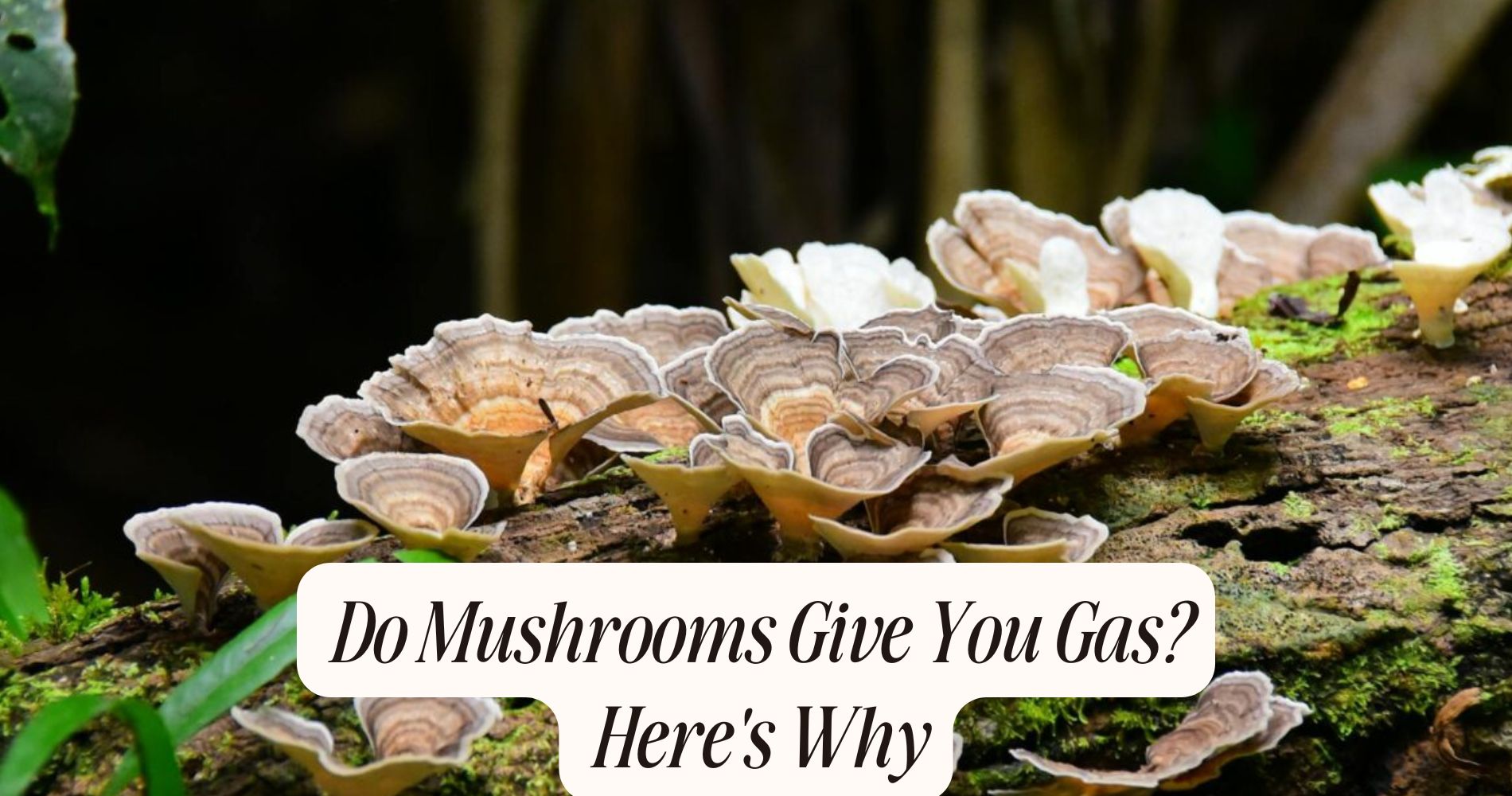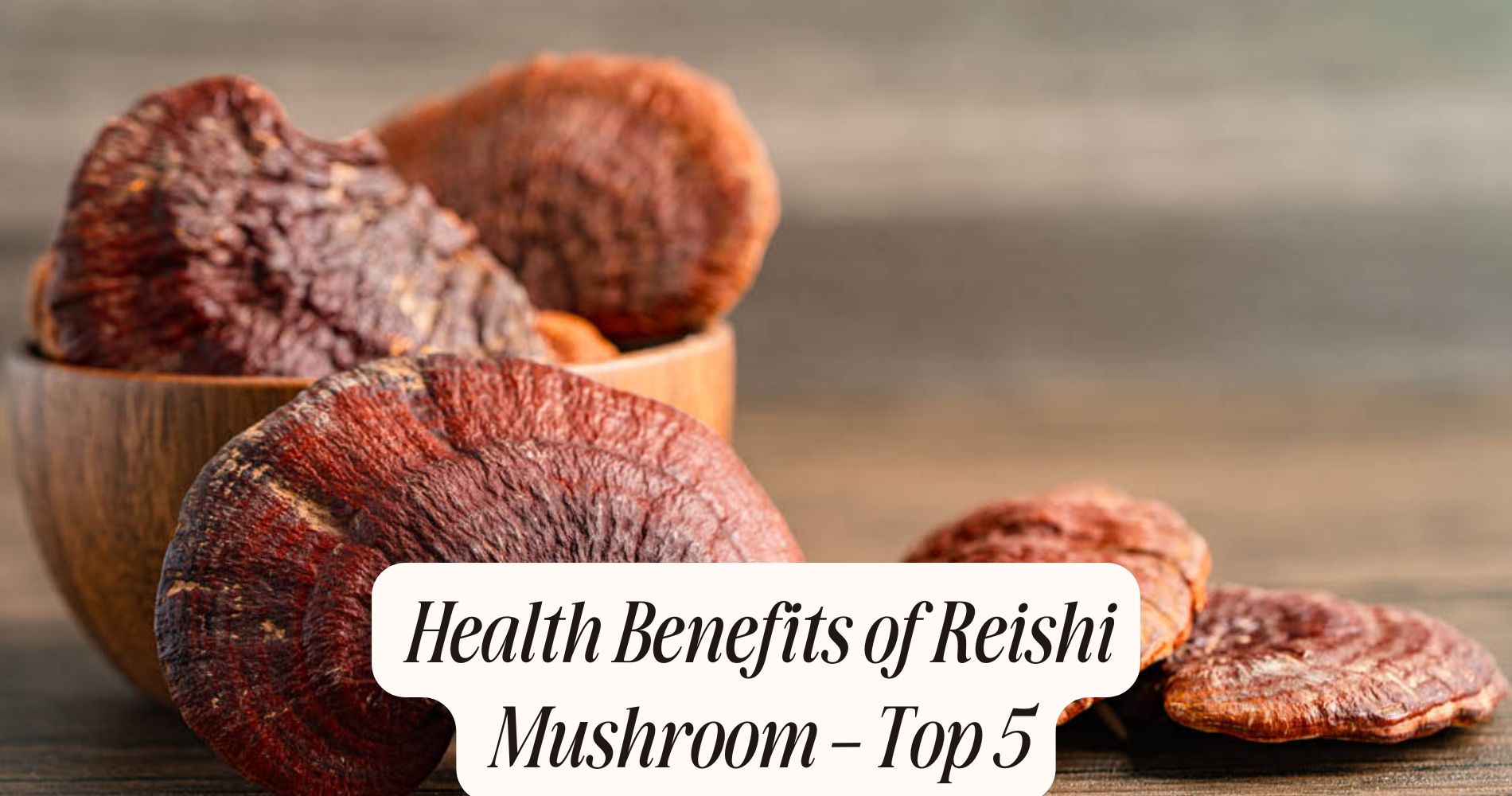
Do Mushrooms Give You Gas? Here's Why
Do mushrooms give you gas? Yes, mushrooms can give you gas because they contain mannitol (a type of sugar alcohol) and complex fibers like chitin that your body can’t fully digest. These compounds travel to your colon, where bacteria break them down and produce gas as a byproduct. This fermentation process can cause bloating, discomfort, and sometimes softer stools, especially if you have a sensitive stomach. If you want to know which mushrooms cause the most gas and how to prevent it, there’s more useful info ahead.
What’s in Mushrooms That Can Cause Gas
Although mushrooms are a nutritious addition to many meals, they contain certain carbohydrates—specifically, a sugar alcohol called mannitol—that your digestive system may struggle to break down. Mannitol isn’t efficiently absorbed in your small intestine. Instead, it reaches your colon, where gut bacteria ferment it, producing gas as a byproduct.
Alongside mannitol, mushrooms contain other complex carbohydrates, like raffinose and trehalose, that can also contribute to gas formation.

While edible mushrooms don’t generally contain dangerous mushroom toxins, trace amounts or indigestible compounds may still affect sensitive individuals. Moreover, fungal enzymes present in mushrooms help the fungus break down organic matter in their environment, but your body may not fully process these enzymes, sometimes resulting in minor digestive discomfort.
This combination can explain why mushrooms may cause gas.
How the Body Digests Mushrooms
Ever wonder what happens when you eat mushrooms? When you chew and swallow mushrooms, your digestive system gets to work breaking down their complex structure.
Unlike some other foods, mushrooms contain certain fibers, like chitin, that your stomach and small intestine can’t fully digest. As mushrooms move through your gut, these fibers reach your colon mostly intact.
Here, your gut bacteria take over and begin a fermentation process. This microbial activity helps break down the undigested fibers, which can influence nutrient absorption in your colon.
While your body absorbs vitamins and minerals from the digested portions of mushrooms, the fermentation process produces various byproducts. Each person’s digestive system and gut microbiome interact differently with mushrooms, which affects overall digestion and nutrient absorption.
Common Symptoms After Eating Mushrooms
After you eat mushrooms, it’s common to notice changes in your digestive system. Some people experience mild bloating, increased gas, or a feeling of fullness. These symptoms happen because your body works hard to break down certain components found in mushrooms, despite their many nutritional benefits.

Mushrooms are popular in a wide range of culinary uses, but their fiber and unique carbohydrates can sometimes cause your gut to react. You might also notice mild stomach discomfort or even softer stools after a meal that includes mushrooms.
Most symptoms are temporary and mild, but they can be more noticeable if you eat mushrooms in large amounts. Understanding your body’s response helps you enjoy mushrooms’ nutritional benefits while minimizing uncomfortable digestive effects.
The Role of FODMAPs in Mushroom Digestion
When you eat mushrooms, their impact on digestion often relates to a group of carbohydrates known as FODMAPs (fermentable oligosaccharides, disaccharides, monosaccharides, and polyols). Mushrooms have a relatively high FODMAP content, especially due to their polyol (mannitol) levels.
Your small intestine can’t fully digest these carbohydrates, so they travel to your large intestine mostly intact. There, your gut bacteria break them down through a process called gut fermentation.
This fermentation produces gases such as hydrogen, methane, and carbon dioxide, which can lead to bloating, cramping, and flatulence. If you’re sensitive to FODMAPs, you might notice more digestive discomfort after eating mushrooms.
Understanding the FODMAP content in mushrooms helps you make choices that support better digestive health.
Types of Mushrooms Most Likely to Cause Bloating
Not all mushrooms have the same effect on your digestive system, and some varieties are more likely to cause bloating than others. White button, portobello, and shiitake mushrooms are commonly grown through commercial mushroom cultivation and often appear in supermarkets. These types, along with oyster mushrooms, have a mushroom nutritional content high in certain carbohydrates, particularly polyols like mannitol.

Your gut may struggle to break down these sugars, leading to increased gas and bloating. Cremini mushrooms, another popular choice, also contain these compounds.
On the other hand, some wild varieties and specialty mushrooms, such as enoki and maitake, may have slightly different nutritional profiles and lower levels of these fermentable carbohydrates. Always consider the type of mushroom when evaluating its potential digestive impact.
Individual Sensitivities and Mushroom Reactions
Although mushrooms contain carbohydrates that can cause gas for many people, individual sensitivities play a significant role in how your body reacts. Sensitivities vary widely from person to person due to differences in gut bacteria, enzyme production, and overall digestive health.
You might notice that your body tolerates some types of mushrooms better than others, or you may experience more pronounced symptoms depending on your unique digestive profile. Individual reactions can range from mild bloating to more noticeable gas and discomfort.
Research suggests that people with conditions like irritable bowel syndrome (IBS) are often more sensitive to the specific carbohydrates found in mushrooms, such as mannitol and other polyols. Recognizing that sensitivities vary helps you understand why your experience may differ from others.
Tips for Reducing Gas From Mushrooms
If you’re looking to minimize gas after eating mushrooms, several practical strategies can help. First, pay attention to your portion size—smaller servings may be easier on your digestive system.
If you suspect mushroom allergies, consult your healthcare provider, as allergic reactions can sometimes mimic digestive discomfort, including bloating and gas.
Gradually introducing mushrooms into your diet allows your gut bacteria time to adjust, potentially reducing symptoms.
You might also consider digestive enzyme supplements, particularly those targeting complex carbohydrates like mannitol, which mushrooms contain. Research suggests these supplements can help break down fibers that cause fermentation and gas.
Keep a food diary to identify patterns or sensitivities.
Cooking Methods That May Help Digestion
When you prepare mushrooms with certain cooking techniques, you can make them easier to digest and less likely to cause gas. Cooking breaks down some of the tough cell walls and complex carbohydrates, such as mannitol, that can contribute to digestive discomfort.
Sautéing, roasting, or boiling mushrooms thoroughly helps reduce these compounds, making them gentler on your digestive system. Steaming is another method that softens mushrooms without adding extra fat, which some people may find beneficial for digestion.

These cooking techniques don’t just improve digestion—they also offer flavor enhancement. Roasting brings out earthy, umami notes, while sautéing with aromatics like garlic or herbs can increase palatability.
When to Be Concerned About Digestive Issues
While most people experience only mild gas or bloating after eating mushrooms, persistent or severe digestive symptoms may indicate an underlying issue. If you notice ongoing abdominal pain, diarrhea, or excessive gas every time you eat mushrooms, it’s important to assess your digestive health.
Some individuals may have mushroom allergies, which can cause gastrointestinal symptoms like nausea, cramping, or vomiting in addition to typical allergic reactions.
Others may experience trouble digesting certain carbohydrates in mushrooms, leading to discomfort.
If symptoms escalate, involve blood in your stool, or cause significant distress, you should consult a healthcare professional. These signs could point to food intolerances, allergies, or digestive conditions that require medical attention.
Don’t ignore persistent symptoms, as early evaluation supports better long-term digestive health.
Alternatives to Mushrooms for Sensitive Stomachs
Although mushrooms offer a rich source of nutrients and unique flavors, they can trigger digestive discomfort for some people. If you’re looking for mushroom alternatives, several stomach friendly options can help you enjoy similar textures and tastes without the risk of gas.
Zucchini, eggplant, and tofu are excellent substitutes in stir-fries, casseroles, and pasta dishes. These foods are generally well-tolerated and don’t contain the same complex carbohydrates that may ferment in your gut and cause bloating.
For a meaty texture, try jackfruit or cooked lentils, both of which provide fiber and protein but are easier on sensitive stomachs.
Always introduce new foods gradually and monitor your response to identify what works best for you. Consult a healthcare provider for personalized advice.
Your Daily Dose of Mushrooms—Made Easy
If bloating from whole mushrooms has you hesitating, try a gentler alternative: SUPER MUSHROOM GUMMIES by Well Gummies. These convenient, chewable supplements pack the power of 10 functional mushrooms—like Lion’s Mane, Reishi, and Turkey Tail—without the digestive discomfort. Designed to fuel your mind and body naturally, our vegan gummies deliver immune support, calm energy, and sharper focus—all with the taste of wild berries and none of the jitters or crash. It's functional mushroom support made delicious, simple, and easy on your stomach.
Frequently Asked Questions
Can Mushroom Supplements Also Cause Gas or Bloating?
Yes, mushroom supplements can cause gas or bloating. You might experience these symptoms due to their fiber content and fermentation effects in your gut, especially if you’re sensitive to dietary changes or have a delicate digestive system.
Are Canned Mushrooms Less Likely to Cause Gas Than Fresh Ones?
You might find canned mushrooms less likely to cause gas than fresh ones because the canning process partially breaks down fiber. Mushroom storage and culinary techniques like thorough cooking can further reduce compounds that contribute to digestive discomfort.
Do Certain Cuisines Prepare Mushrooms in More Digestible Ways?
Certain cuisines use specific cooking techniques and cultivation methods that can make mushrooms more digestible for you. By sautéing or fermenting mushrooms, you may break down fibers, enhance flavor profiles, and potentially reduce digestive discomfort, according to research.
Can Pets Experience Gas From Eating Mushrooms?
Yes, your pets can experience gas from eating mushrooms, but you should know that pet toxicity and mushroom poisoning are bigger concerns. Many mushrooms are toxic to pets, so never let them eat wild or unknown varieties.
Are There Any Benefits to Eating Mushrooms Despite Potential Gas?
You gain significant nutritional benefits from eating mushrooms, including fiber, vitamins, and antioxidants. Research shows they may boost immune support, making them a valuable addition to your diet, even if you sometimes experience mild digestive discomfort.
Conclusion
If you notice gas after eating mushrooms, you’re not alone—many people experience this due to their FODMAP content and tough-to-digest fibers. While some types and cooking methods may help, everyone’s tolerance is different. Paying attention to your body’s response is key. If digestive symptoms persist or worsen, consult a healthcare provider. Remember, there are alternatives if mushrooms don’t agree with you, so you can still enjoy flavorful meals without discomfort.




